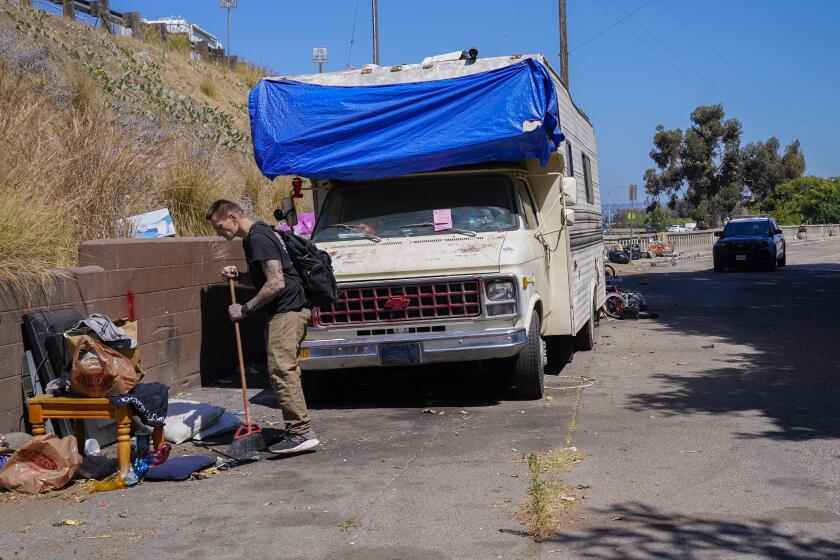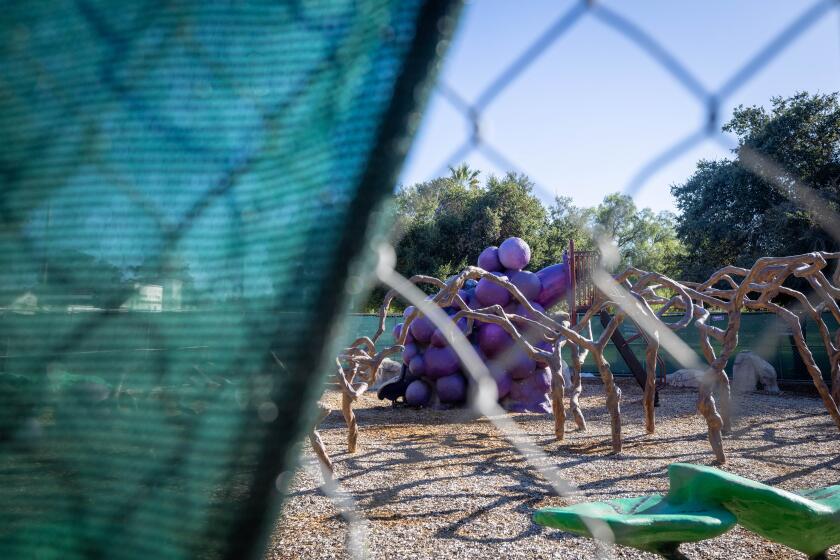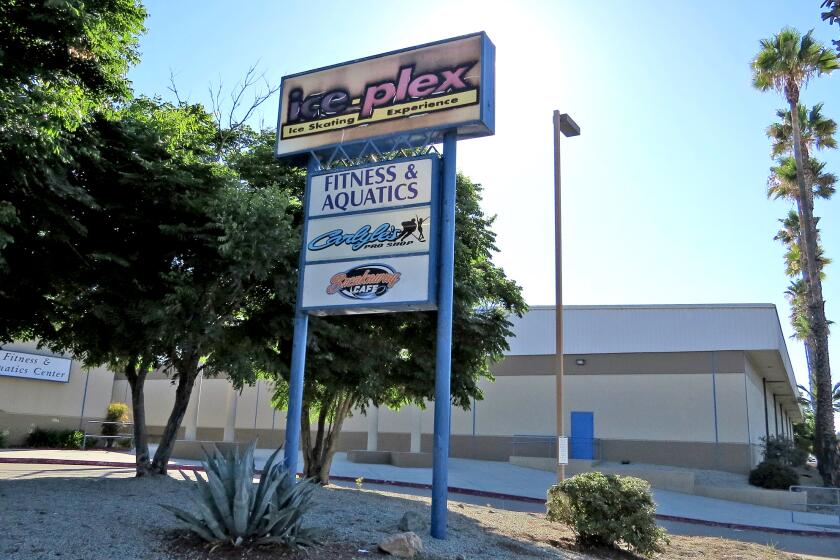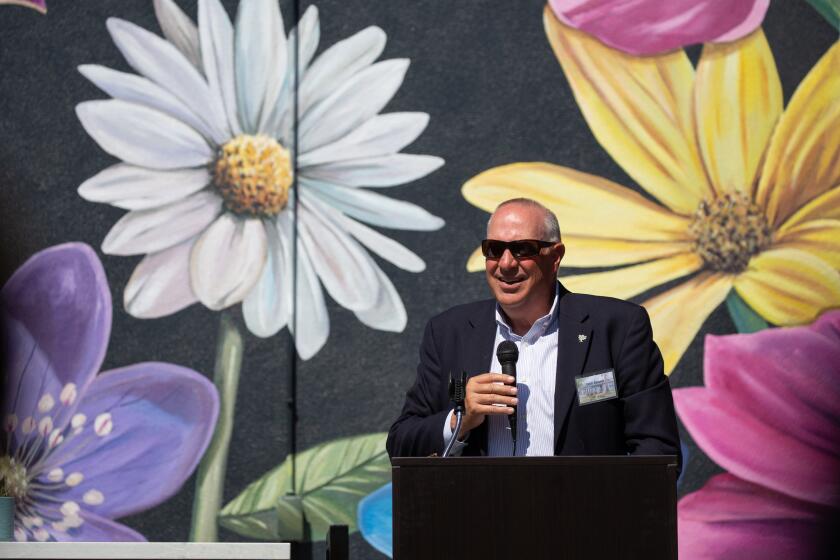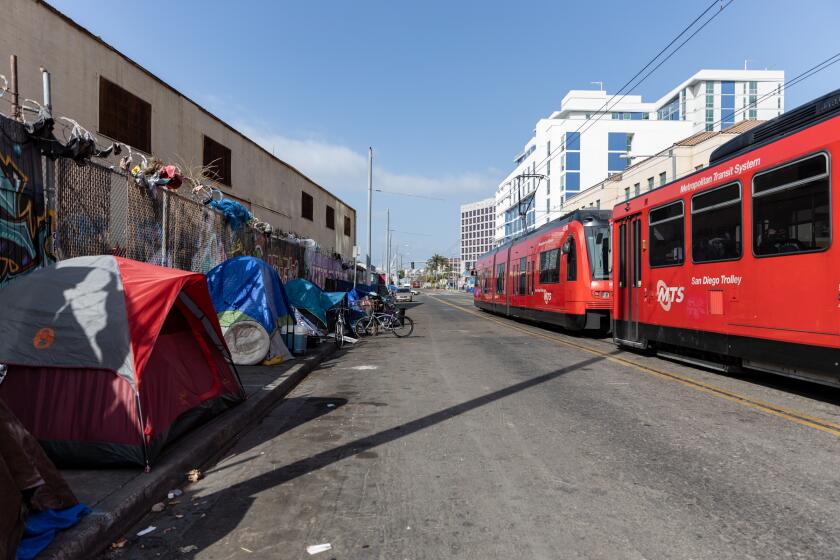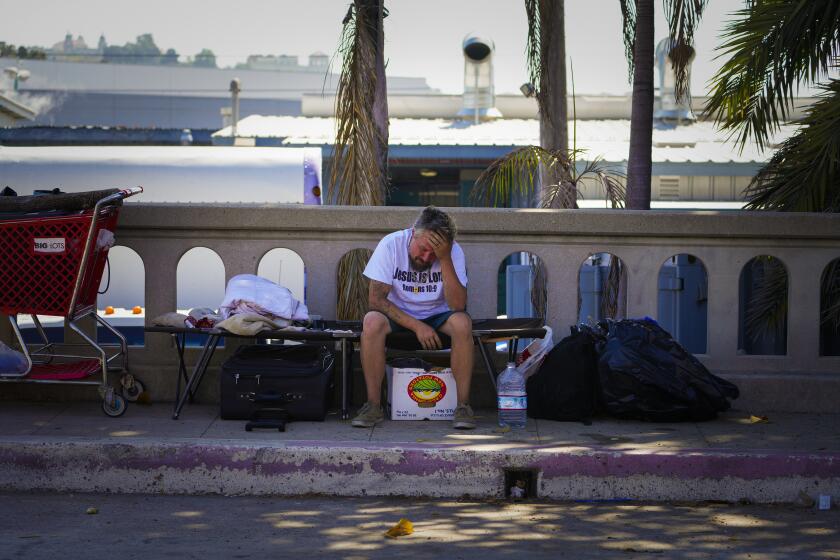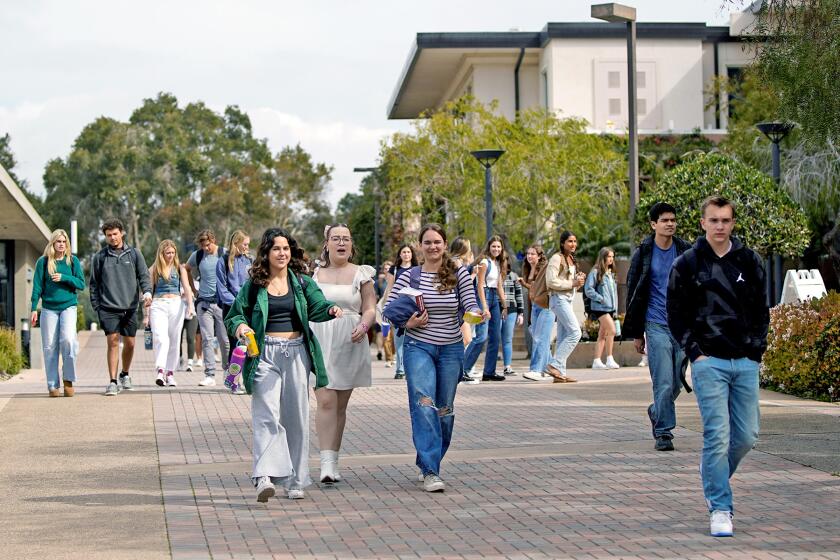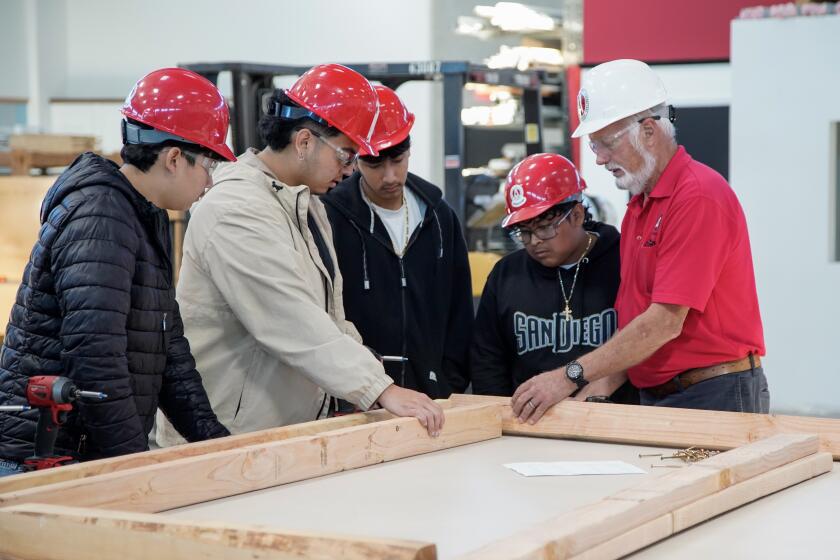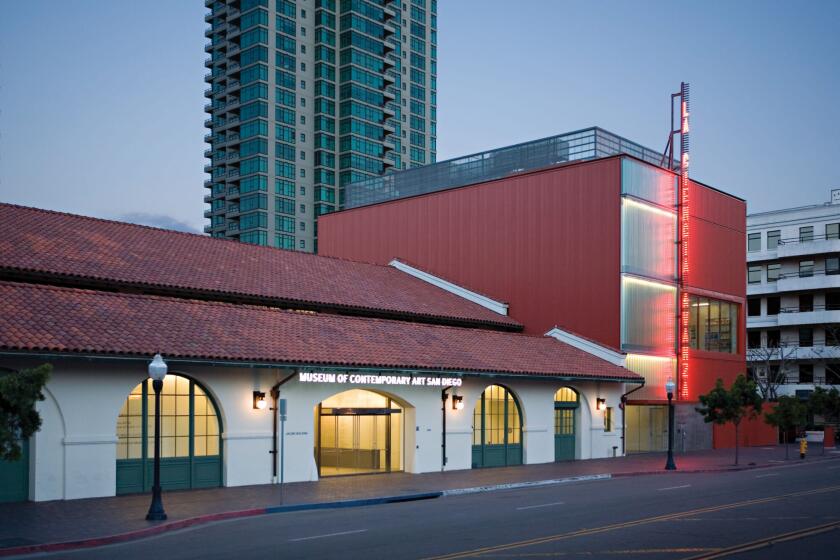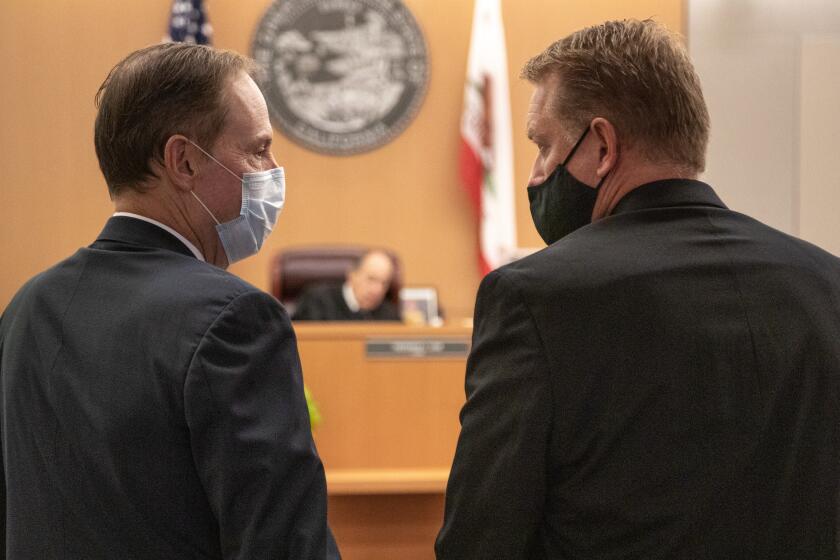‘Woman of La Mancha’ takes helm at Palomar
Interships at Tesla Motors, cyber security training for veterans and more STEM training for female students.
These are the things Palomar College may see in the near future, according to incoming President and Superintendent Joi Lin Blake.
“There’s a lot of opportunities,” said Blake, who comes to Palomar after severing as president of the College of Alameda in the Bay Area since January 2015. “That’s what excites me about coming here.”
She added that she’s excited about helping shape the uses of new buildings for the San Marcos campus.
Blake, whose first day on the job is Monday, has roots in San Diego, where her mother still lives and where she attended high school and began her career.
Beginning her new job during the relatively quiet of summer, Blake said she plans to spend her first days focusing on meeting area stakeholders and learning about the campus and the needs in the area.
“A lot of folks have come up to me and said, ‘We’re excited about your energy and what you’re bringing,’” she said. “I’m kind of assessing our assets and taking time to learn the community, looking at the enrollment, the new center, and how we can strengthen what we already have.”
Blake was referring to the Library/Learning Resource Center scheduled to open in 2018, one of several projects planned for the campus in the coming years.
“I think there’s a unique opportunity here with the capital projects, building out the buildings and facilities so we can expand what we offer to better serve the community,” she said.
Blake also is interested in working with Girls Inc.,a national organization with a local chapter in Escondido, to encourage girls in science, technology, engineering and mathematics, or STEM. The organization helps boost STEM and athletic skills among girls, and Blake has worked with the group in the past.
The Palomar College Governing Board approved Blake’s four-year, $230,000 annual contract in June. She replaces Adrian Gonzales, who was appointed interim superintendent/president when former Superintendent/President Robert Deegan retired in June 2015. Gonzales has returned to his previous position as vice president of student services.
Blake, whose father was in the Air Force, was born in Guam and lived in Japan and Colorado before her family moved to San Diego, where both her parents continued their education and set her on a path to go to college.
The family lived in Lemon Grove and Blake attended Mount Miguel High. At 17, she was diagnosed with rheumatoid arthritis, and she recalled that the doctor who realized the severity of her condition advised her that she would have to “use her brain” instead of doing physical activities.
“I had kind of given up on life, basically,” she said of how the diagnosis hit her. She found renewed hope when she enrolled at Grossmont College, where she was helped by the school’s Disabled Student Programs and Services.
“Grossmont gave me that hope and courage to go back to school,” she said. “And here I am now, and it was because community college and support and faculty believed in me and knew I had a future. They helped me restore that confidence and dignity I thought I had lost because of a disability.”
After attending Grossmont, Blake earned a degree in health education with a emphasis in community health and a minor in Spanish from San Francisco State University. She returned to San Diego to earn a degree in vocational rehabilitation counseling at San Diego State University, where she also earned a doctorate of education in educational leadership with an emphasis in postsecondary education/community colleges.
“I wanted to give back and provide others with that hope and opportunity they shared with me,” she said about her vocational rehabilitation degree.
“I’ve had a lot of challenges,” Blake said. “I often call myself ‘The Woman of La Mancha’ because I’ve had a lot of windmills I’ve had to slay. Being female, being disabled, being African American, being dependent of military personnel and having to move from city to city.”
Blake worked at Southwestern College from 1991 to 2006 in several roles, including instructor and counselor, interim dean of instructional support services and interim staff development coordinator. She counts her tenure as academic senate president at the college as among her proudest accomplishment.
“I worked really well with the administration to move the campus forward,” she said. “It had gotten stuck for a moment.”
Blake said “a lot of political stuff” had bogged down relations between administration and faculty, and she is proud to have helped bring the two sides together.
Working at Mesa College from 2006 to 2011, Blake became an administrator herself as dean of student development and matriculation.
“When I decided to become a dean, I saw the impact my influence could have on the system so we could better serve students,” she said. “That’s what encouraged me to go into administration. I knew my voice at the table was going to make a difference for people who often can’t speak for themselves or don’t even know how to speak up for themselves.”
At Mesa, Blake put together an African American/Latino leadership summit and a nationally recognized outreach program.
In 2012, Blake became vice president of student services at Skyline College in the San Mateo County Community College District in San Bruno, where she introduced a program that exposed kindergarteners to college and an outreach program to middle school. She also created partnerships with a chamber of commerce, started a Cesar Chavez luncheon program and created a consciousness lecture series with top education reformers.
At the College of Alameda, Blake created a partnership with Tesla Motors to provide paid internships and the possible employment for students. With her contact in the company now in San Diego, Blake said she is interested in creating a similar partnership at Palomar. Blake said she also may create a partnership with NPOWER, a program she worked with in Alameda that teaches cyber-security to veterans.
While she’s returning to a familiar county, Blake said there still are some adjustments she’s had to make in her move. Because Alameda is an island, the maximum speed on almost every road is 25 miles an hour, and Blake said she’s found herself driving slower than other motorists in San Diego.
gary.warth@sduniontribune.com
760-529-4939
@GaryWarthUT
Get Essential San Diego, weekday mornings
Get top headlines from the Union-Tribune in your inbox weekday mornings, including top news, local, sports, business, entertainment and opinion.
You may occasionally receive promotional content from the San Diego Union-Tribune.

